Shanghai Jiao Tong University Global College (SJTUGC, abbreviated as GC) hosted the “AI for Science” Hackathon (Shanghai) at Long Bin Building from September 12 to 14. The event brought together more than 200 developers and researchers from leading universities, research institutes, and enterprises to explore how AI can accelerate scientific discovery.
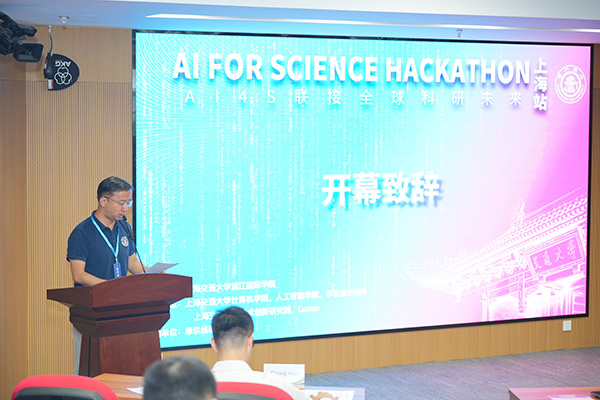
Haojin Zhu delivers opening speech.
At the opening ceremony, Chairman of the GC Council Haojin Zhu welcomed participants and emphasized that artificial intelligence is becoming a driving force in reshaping scientific paradigms. He noted that GC’s commitment to interdisciplinary innovation and talent cultivation aligns closely with the hackathon’s goal of integrating AI with frontier research. Zhu encouraged participants to address real-world problems, strengthen cross-disciplinary cooperation, and serve as explorers of future-oriented science, enabling AI to create value in solving scientific challenges and driving paradigm-changing breakthroughs.
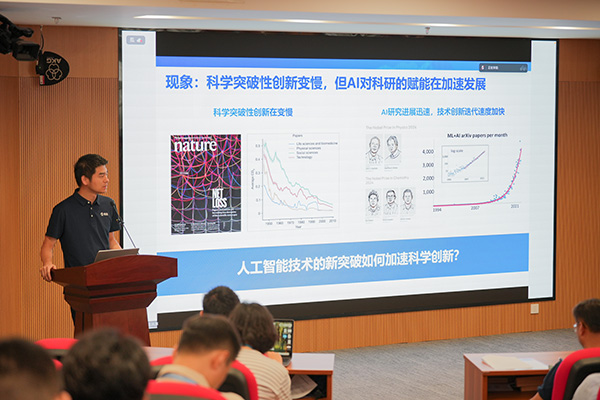
Keynote talks by AI experts
The three-day event featured keynote talks from experts at Shanghai AI Laboratory, Shanghai Jiao Tong University, Westlake University, and Alibaba’s Qwen Lab, who shared insights on AI’s applications in scientific research. Technical experts from Moore Threads and Lucien also introduced practices in GPU-accelerated computing and AI for Science collaboration.
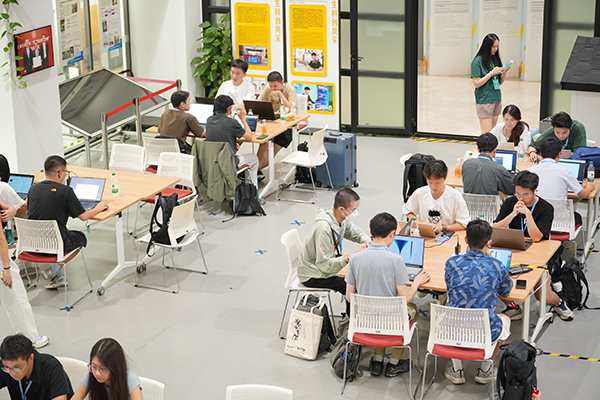
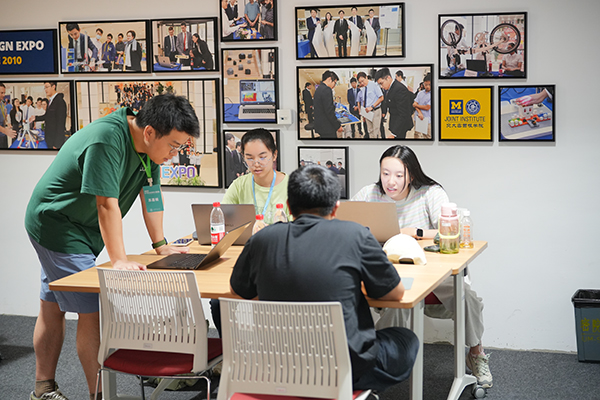
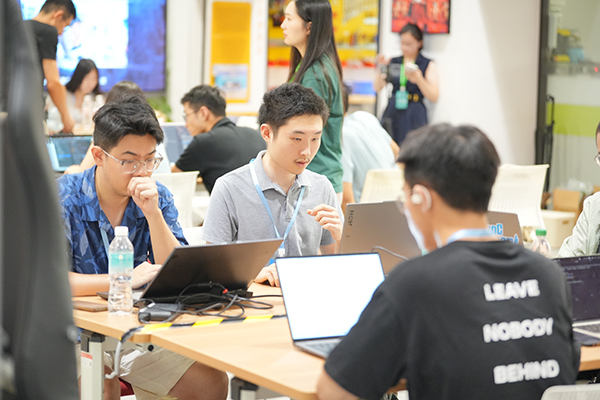
Event scenes
Through intensive teamwork, participants developed 21 innovative AI-powered research solutions across fields such as materials science, life sciences, and industrial intelligence. These projects demonstrated the broad potential of combining domain knowledge with AI technologies to advance scientific progress.
A panel of judges evaluated the projects on scientific impact, creativity, and completeness. One first prize, two second prizes, and four third prizes were awarded.
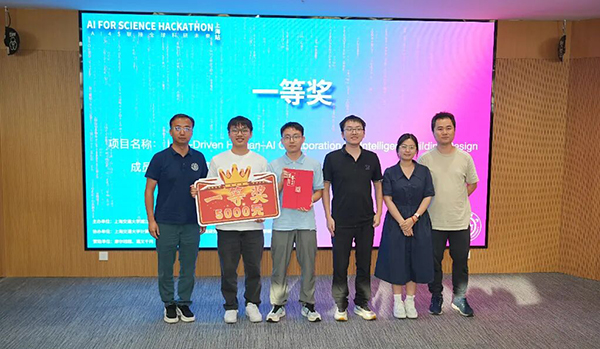
Haojin Zhu (first from left) awards the first prize team.
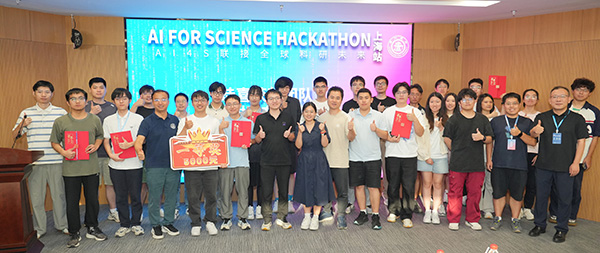
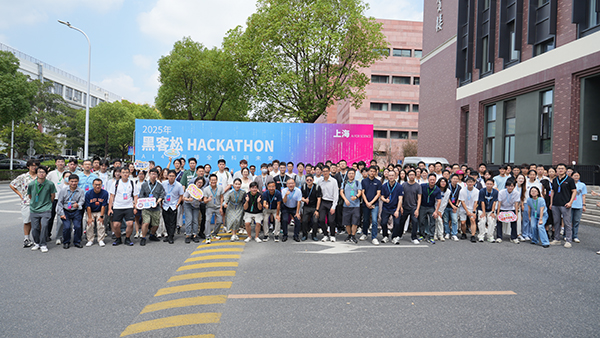
Group photo of attendees
